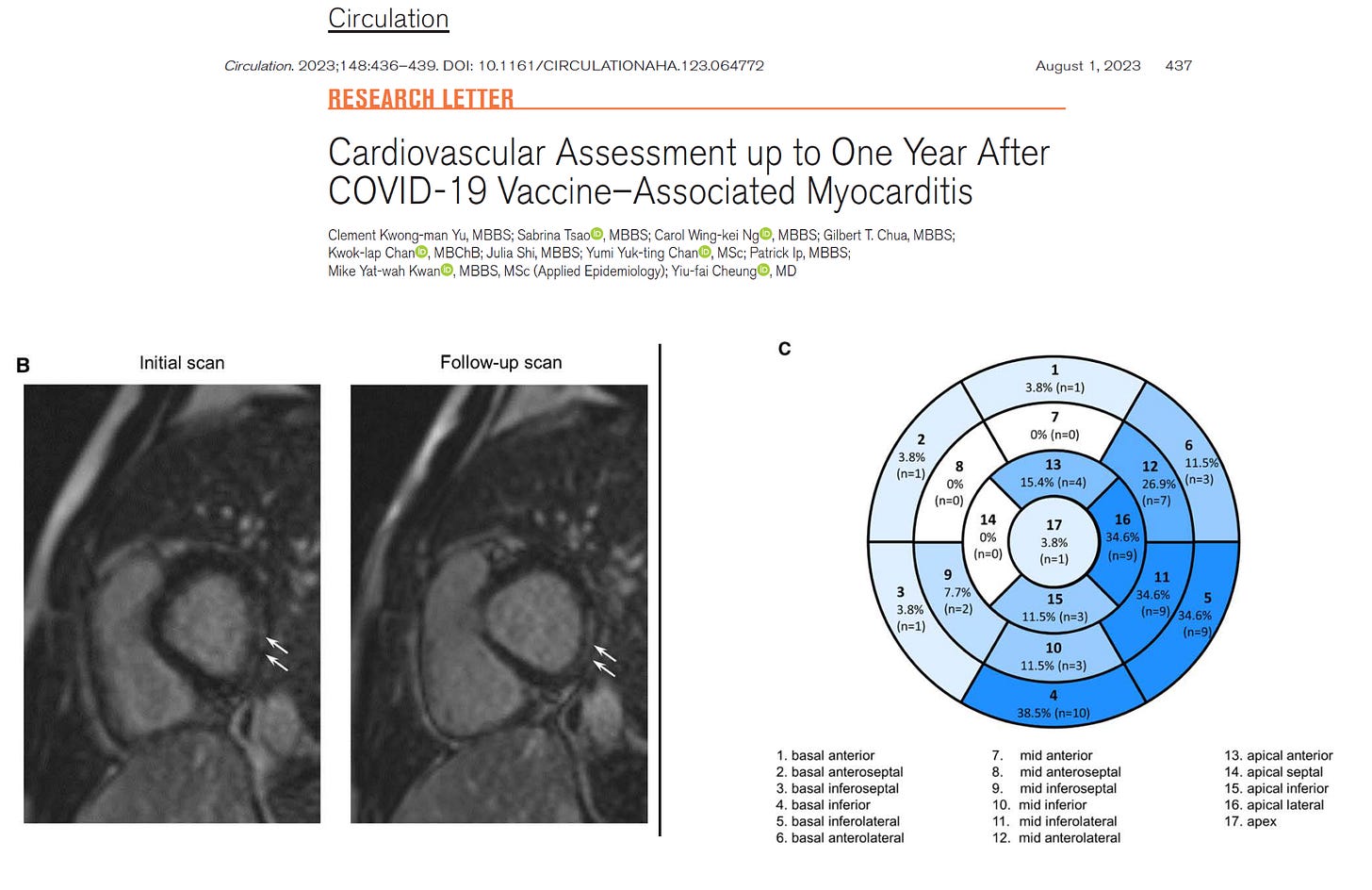Growing Concern Vaccine Heart Damage in Adolescents May be Permanent
Hong Kong Study Finds 58% of COVID-19 Vaccine Myocarditis Confirmed by MRI Not Resolved at One Year
By Peter A. McCullough, MD, MPH
Almost everyday the news brings another story of a young person dying of cardiac arrest. It is a sickening realization that COVID-19 vaccine induced myocarditis could leave a zone of scar in the heart, risking the chance of ventricular tachycardia, ventricular fibrillation and cardiac arrest at any time. Recently Hulscher et al have conclusively shown by autopsy that COVID-19 vaccine induced myocarditis can be fatal.
Now a Hong Kong study by Yu and colleagues have found that of young persons who had heart damage confirmed by MRI and who underwent a second scan one year later, 58% had residual abnormalities suggesting a scar could be forming in the heart muscle.
Forty adolescents, mean age of 15, mostly boys were evaluated. It was notable that 73% had no cardiac symptoms, so without an evaluation, the parents would have had no idea their child was suffering heart damage from the COVID-19 vaccine. Approximately 18% of cases initially had reduced left ventricular ejection fraction indicating they were at risk for the development of heart failure.

The authors point out that several other studies have found a majority of COVID-19 vaccine myocarditis cases with abnormal cardiac MRI findings have not resolved at 3-6 months. Now the report by Yu and colleagues suggest the damage may be permanent at a year.
Please share this important development with parents who have vaccinated their children or are contemplating with succumbing to school mandates. The shot may cause irreversible damage and a lifetime of worry and regret.
Please subscribe to Courageous Discourse as a paying or founder member so we can continue to bring you the truth.
Peter A. McCullough, MD, MPH
President, McCullough Foundation





The perpetrators of this human cull must be brought to trial immediately.
Aren't cardiac damages permanent by definition, since cardiac tissues don't regenerate?